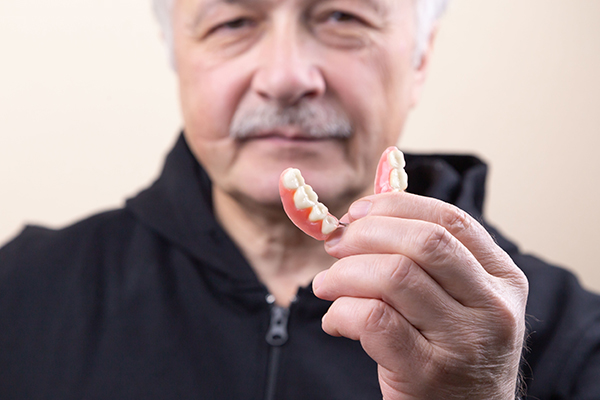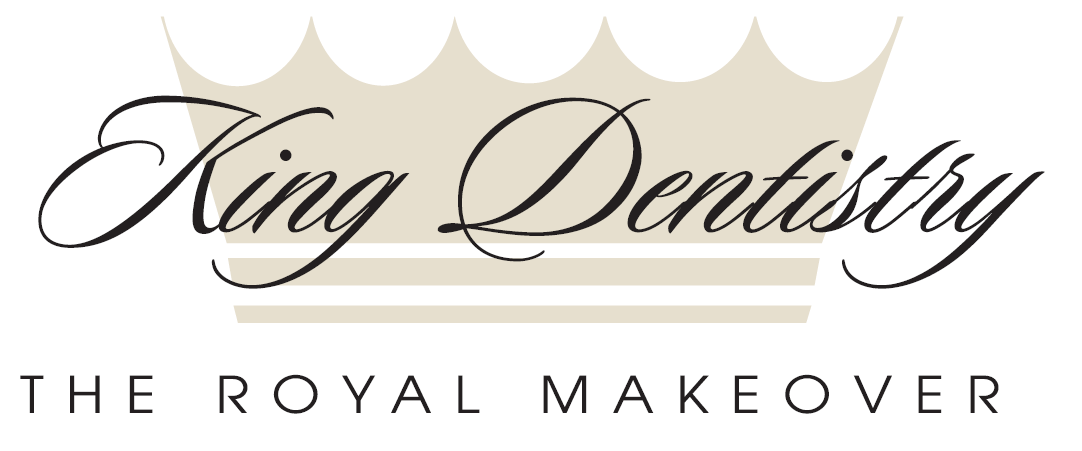



Routine maintenance is necessary as you are adjusting to new dentures. Like natural teeth, plaque and stains can collect on them. These dental restorations take the place of missing teeth. If you want to find out about adjusting to new dentures, here are easy-to-follow tips to keep them in great shape.
Basic denture care
It is important to follow basic dental hygiene when adjusting to new dentures. Placing dentures in a cleaning solution or water before sleeping is important. Doing so can help them keep their shape, remain moist, and stay pliable. Both full and partial dentures can accumulate stains, calculus, and plaque, much like natural teeth.
They can contribute to the development of various dental problems if the individual does not clean the dentures the right way. Brushing them with a non-abrasive cleanser can remove biofilm and food particles. It can also prevent the onset of tartar. Meticulous cleaning can result in a better denture experience.
Placing these dental appliances under clean, running water can loosen the food particles. Placing a towel in the sink can prevent breakage if the individual drops them. Handling the restorations with care can prevent damage to the clasps or the body itself. Cleaning the mouth after removing the restorations can maintain good gum and jawbone health. This can also scrape off leftover denture adhesive.
Using a non-abrasive cleaner and a soft-bristled toothbrush can clean without leaving any damage. Cleaning the grooves well can remove denture adhesives. Soaking the dentures overnight helps them stay moist. The dentist can recommend a type of soaking solution that suits the patient’s needs.
Rinsing these dental appliances before placing them back in the mouth is important. This helps remove the toxic materials from the denture cleanser. Routine dental visits can help maintain the patient’s oral and denture health. The dentist could make necessary adjustments if the patient reports any discomfort or loosening. All these are necessary for adjusting to new dentures.
Denture cleaners and adhesives
Daily cleaning helps prevent permanent staining. Adjusting to new dentures involves the removal of food particles and denture adhesives at the end of each day. Using a soaking solution can make the task easier. These products often come in the form of pastes or tablets.
Following the manufacturer’s instructions for the cleansers is important. The directions indicate what specific steps to take and how long to let the dentures soak. Using creams, gels, and pastes should only be done after taking the dentures out. It is not good to use a denture cleaner while the dentures are still in the mouth.
Denture adhesives can hold the restorations in place. They also create a seal that prevents food from lodging between the appliance and gums. A denture adhesive can help individuals with dry mouth. When using an adhesive, be sure to:
- Follow manufacturer instructions
- Avoid using more than necessary
- Use a zinc-free product
- Start with a small amount
Products to avoid for cleaning
Adjusting to new dentures involves knowing what products to avoid. Whitening toothpaste can scratch the dentures. Even if the patient’s aim is to whiten the denture teeth, nothing will happen. Peroxide in whitening toothpaste cannot whiten denture teeth at all. Using hard toothbrushes and harsh cleansers can damage the restorations as well.
Hot water can warp or deform dentures. Using tepid water is enough for soaking them. Cleaning these dental restorations with bleach will only weaken them. This could even discolor the restorations.
What to do about denture pain
Stopping or reducing this pain is possible by sticking to proper oral and denture cleaning habits. Cleaning the roof of the mouth can prevent pain-causing thrush from forming. Using dentures the right way every day can prevent gum irritation. This could cause more bone loss. These can make adjusting to new dentures more difficult.
Ill-fitting partials should never stay in the mouth long as these could cause allergies and intense pain. It could also cause abrasions in the soft tissue. This could allow bacteria to cause more damage to the mouth. Bringing them to the dentist can result in quick repair and realignment. Resting the gums for six hours a day allows the gums to recover.
Adjusting to new dentures involves working with your dentist and doing your part
Speaking to the dentist about how your dentures fit is important. Ill-fitting partials should receive adjustments. Over time, you can enjoy getting your self-image back because of your restorations. Dentures can also bring back your dental health and general health. Regular dental checks can help extend the life span of your restorations.
Are you considering adjusting to new dentures in the Turlock area? Get more information at https://www.kingdentistry.com.
Check out what others are saying about our dental services on Yelp: Adjusting to New Dentures in Turlock, CA.
Recent Posts
If you are someone with gaps in their smile, there are many options for replacing missing teeth available to you. A dental bridge is a time-honored solution for replacing missing teeth. Similar methods for replacing teeth have been used for thousands of years.A dental bridge is a single or series of false teeth, called pontics,…
There are many options for replacing missing teeth, even if they are your front teeth that are missing. Missing front teeth can severely hurt a person’s self-esteem and confidence because the missing teeth are right where everyone can see them. However, there are solutions to that problem. Read on to learn more. Your dentist will…
If you're considering your options for replacing missing teeth, you may want to know when you should make your decision. In short, as soon as you can. Now, this is not always an option nor available at a moment's notice.Depending on the route you go, you're going to have to wait to let things heal.…
If you have a missing tooth or several missing teeth, you may wonder what your options for replacing missing teeth are. Fortunately, there are several replacement options. Dental implants are not the only option for replacing missing teeth. Continue reading to learn about the treatments available, along with the pros and cons of each treatment…


